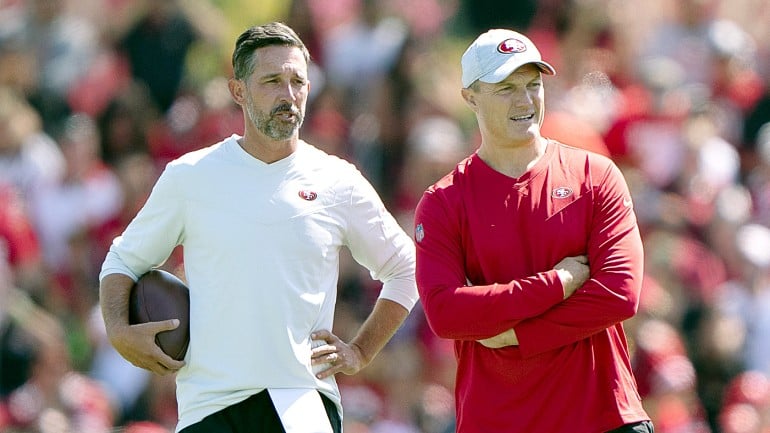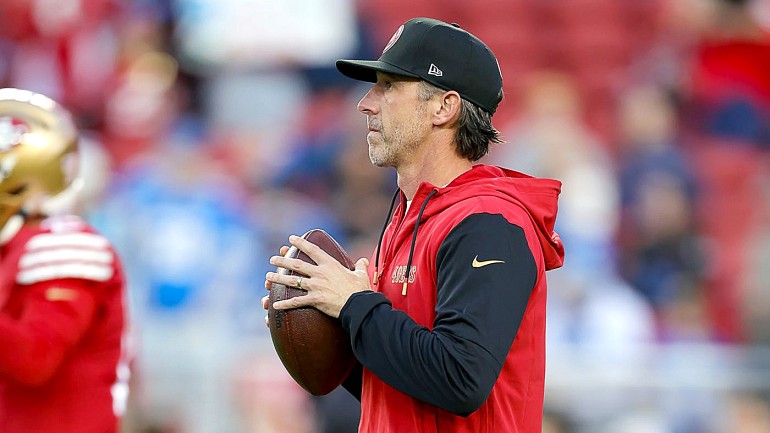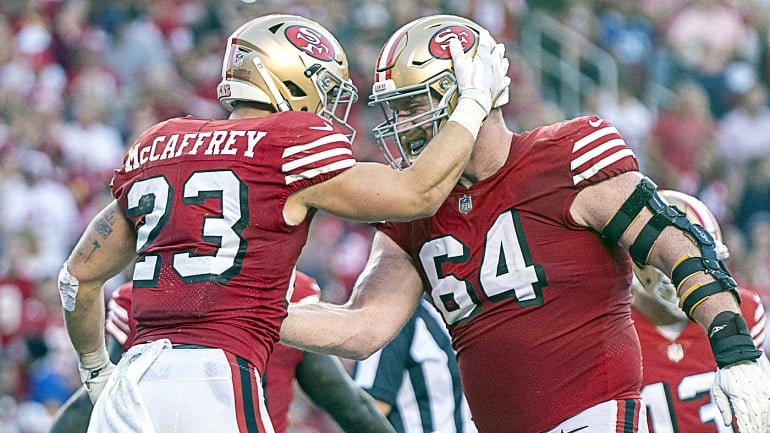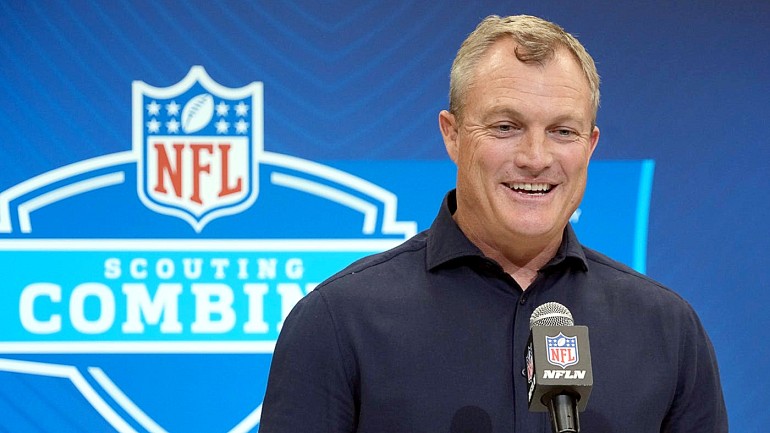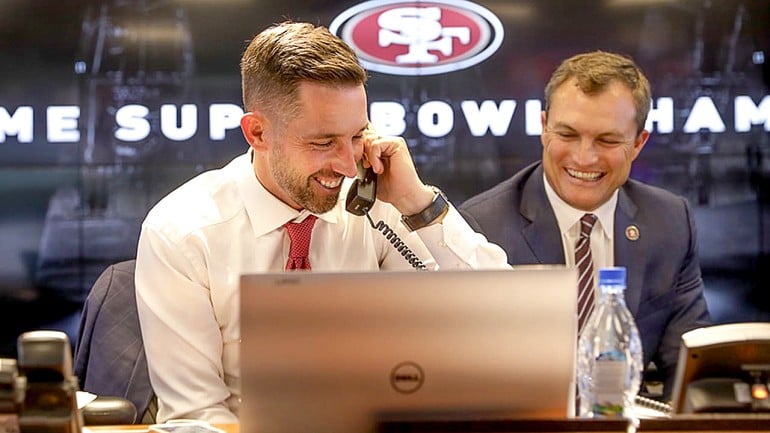Pundits across the league have identified the 49ers' needs (look to this excellent article by Kraz Greinetz for a nuanced evaluation), and it is clear there are holes in almost every part of the roster, some gaping, some small. Since this draft is one the powers-that-be must hit on, I propose that general manager John Lynch and head coach Kyle Shanahan's preparation should include one thing first: understand what they do and do not do well.
Some have suggested that with the loss of Jordan Mason, the Niners should take a running back. After all, they have two picks in the 3rd round and two picks in the 4th. However, Lynch and Shanahan have drafted that position poorly. Tyrion Davis-Price (3rd round), Trey Sermon (3rd), and Joe Williams (4th) were all wasted picks. Jalen Hurd (3rd round) was seen as a multi-talented addition to the running game, but he never saw the field. However, the Niners landed Elijah Mitchell in the 6th round, and Mason and Matt Breida as undrafted free agents. All three were successful. Messrs. Lynch and Shanahan: do not draft a running back.
On the other hand, Lynch has drafted the following defensive backs: Deommodore Lenoir (5th round), Renardo Green (2nd round), Talanoa Hufanga (5th), Ji'Ayir Brown (3rd), and DJ Reed (5th, but sadly not kept on the team). In other words, Lynch has hit on defensive back picks in all parts of the draft, and corner is a need for the 49ers this year. Fans can trust Lynch to take someone good in any round, maybe one early and one late.
Lynch has not been great with offensive linemen, but when reviewing his selections, we see what the reason might be: Dominick Puni (3rd round) has been a stud. Mike McGlinchey (1st), while not worth his high selection, was a competent tackle. Aaron Banks was a 2nd rounder and basically competent. Lynch drafted no offensive lineman after the 3rd round who turned into a starter, except for Colton McKivitz, who only got the starting job after McGlinchey's departure. In other words, it was not due to talent or development, but to Lynch's non-investment with draft capital that landed Colton the gig on the right side.
The verdict: if he wants to protect quarterback Brock Purdy, Lynch needs to take a lineman—or two—in the 3rd round or earlier. Lynch's ability to identify diamonds in the rough at that position is not what it is on the defensive side of the ball, where he shines.
Lynch hasn't actually drafted that many defensive linemen. Many were signed in free agency. However, Nick Bosa (#2 overall) and DJ Jones (6th round) were excellent picks. Kentavius Street is a solid rotational player, albeit, like Jones, with another team now. San Francisco needs defensive line help in a major way. Take a swing there with an early pick or two, John, and maybe one late.
At tight end, Lynch can always point to George Kittle as a great success, but every other tight end he's drafted—early or late—Charlie Woerner, Cameron Latu, Brayden Willis, and Kaden Smith—has been a non-entity. Plus, he signed Luke Farrell this offseason. Wait until after the draft to get one. It's better to use those late picks on a defensive back, where Lynch has identified good contributors.
Although I don't believe the 49ers should draft a receiver, it's a position the team has historically done well with. See: Deebo Samuel (2nd round), Brandon Aiyuk (1st), Ricky Pearsall (1st), and Jauan Jennings (7th). Perhaps it is because of Shanahan's history playing receiver that they've had good luck with that position.
People will point to all of the busts Lynch has picked—the standard "what about" response. The fact of the matter is, if any GM ends up with solid picks a third of the time, he's done a good job. Lynch has fallen somewhere in that range.
But with so much on the line this year, Lynch needs to do better than that. He needs to remember he evaluates some positions better than others and draft accordingly.
